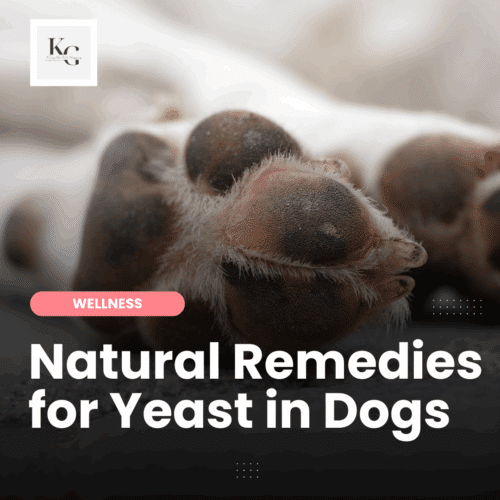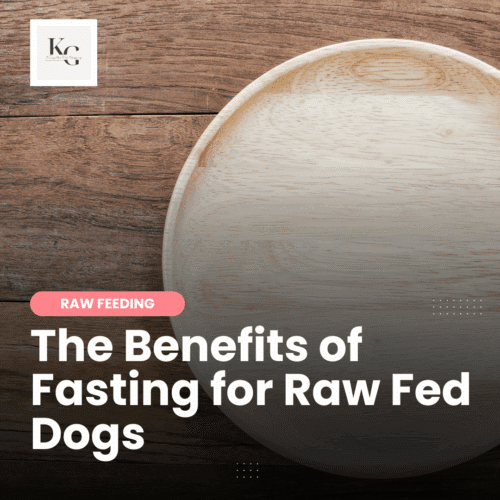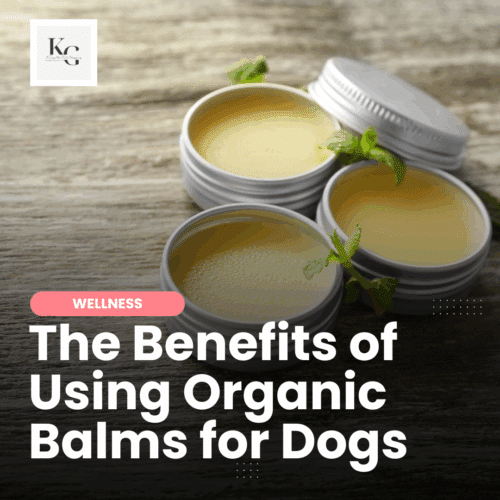Keep the Tail Wagging is supported by pet parents. I occasionally earn a commission (at no additional cost to you) when you click through an affiliate link to one of my favorite products. Thank you for your support. Read More
Collagen treats and meal toppers are growing in popularity, but are they beneficial? When I began looking for collagen products to add to my senior dog's diet, I quickly realized I didn't know enough about collagen to make an educated choice.
What is Collagen?
Collagen is like the “glue” that holds the body together. It's the most abundant protein in a mammal's body and plays a crucial role in giving our skin, bones, muscles, and other tissues structure, strength, and elasticity. It's really important for keeping our dogs healthy and feeling good overall!
Key Points about Collagen
- Structure: Collagen is a strong and flexible fibrous protein made up of three polypeptide chains twisted together in a structure known as a triple helix.
- Types: Different types of collagen are present in various tissues, each with specific functions in the body. This article will cover Types I, II, and III.
- Functions: Collagen is crucial for maintaining skin elasticity, bone strength, joint flexibility, and the integrity of connective tissues.
- Production: The body produces collagen through specialized cells called fibroblasts and osteoblasts. Factors such as aging, diet, and lifestyle can influence its production.
- Benefits: Supplementing with collagen or consuming collagen-rich foods can help support skin health, joint function, and overall tissue repair and regeneration.
Types of Collagen
Type I:
Type I collagen is the most abundant collagen in a mammal's body. It provides structure and support for skin, bones, tendons, ligaments, and other connective tissues. Type I collagen is vital in wound healing, skin elasticity, and bone strength.
Type II:
Type II collagen is primarily found in cartilage and provides cushioning and joint support. It's essential for maintaining healthy joints, supporting cartilage health, and preventing conditions like arthritis.
Type III:
Type III collagen is commonly found alongside Type I collagen in the skin, blood vessels, and organs. It contributes to the elasticity of skin, supports blood vessel structure, and plays a role in tissue repair and regeneration.
Benefits of Collagen for Dogs
- Joint Health: Collagen improves joint and cartilage health, supporting dogs with joint issues or arthritis.
- Skin and Coat Health: Collagen improves skin elasticity and supports keratin production for a shiny coat. It also helps address skin issues like dryness and flakiness.
- Digestive Health: Collagen supports the intestinal lining, leading to improved digestion and gut health.
- Wound Healing: Collagen's role in skin structure and regeneration helps to naturally boost wound healing.
Side Effects of Collagen for Dogs
Collagen is generally safe for dogs, but overindulging can lead to digestive issues like diarrhea or upset stomach. I haven't witnessed any issues with my dogs, who get some form of collagen on a daily basis.
Collagen and Common Proteins
Although collagen can be provided through a supplement, it's easier to digest and absorb when a dog gets collagen through their diet. However, the collagen type and amount varies based on protein.
Beef – Beef is known to be higher in collagen than other common proteins, with Type I (wound healing, skin elasticity, and bone strength) collagen being the most predominant.
Chicken – Chicken contains lower levels of collagen than beef; primarily Type II collagen (joint health and cartilage).
Pork – Collagen in pork is lower than beef, but similarly to beef, it's rich in Type I (wound healing, skin elasticity, and bone strength),
Fish – Type I collagen is high in fish, specifically the scales and skin.
Natural Sources of Collagen for Dogs
- Bone Broth: Bone broth made from simmering animal bones (such as chicken, beef, or fish) is a rich source of collagen and other nutrients like gelatin, minerals, and amino acids. I primarily make bone broth using lamb neck bones, pork rib bones, and chicken and duck feet; the latter three are high in collagen.
- Fish and Seafood: Fish skin, fish heads, and other seafood sources contain collagen, especially Type I collagen, which is beneficial for skin and joint health. I source fish heads from a local outlet grocery store, and use them in homemade bone broth.
- Organ Meats: Organ meats like liver, heart, and kidneys are good sources of collagen and other nutrients important for overall health.
- Egg Yolks and Eggshell Membrane: The egg whites don't contain collagen, but the egg yolks and eggshell membrane help boost the body's collagen levels. Some raw feeders gently peel the membrane from the shell and drop it onto their dog's meal.
- Raw Meaty Bones: Choosing bones with meat still attached can provide some collagen, especially in connective tissues and joints. A few great options include beef and lamb neck bones and chicken and duck feet and necks.
My dogs also enjoy treats and chews rich in collagen:
- Icelandic+ Collagen Chews (several varieties are available)
- Honey I'm Home collagen strips and rolls (several sizes are available)
Although there are a lot of supplements with collagen as an ingredient, I haven't found a 100% collagen supplement for dogs that I feel comfortable trying. I prefer to stick with whole foods and treats.





